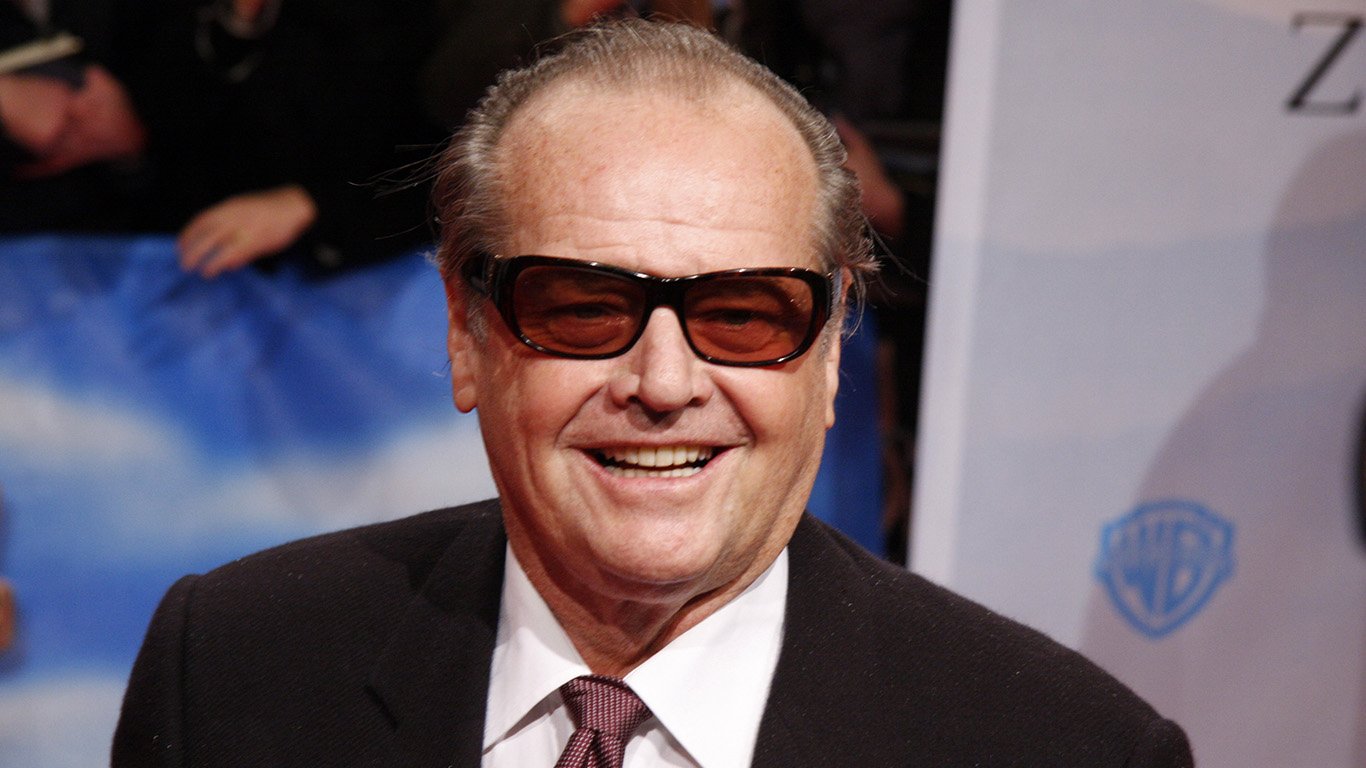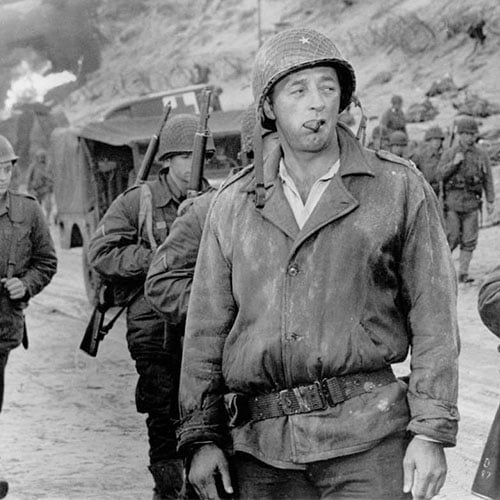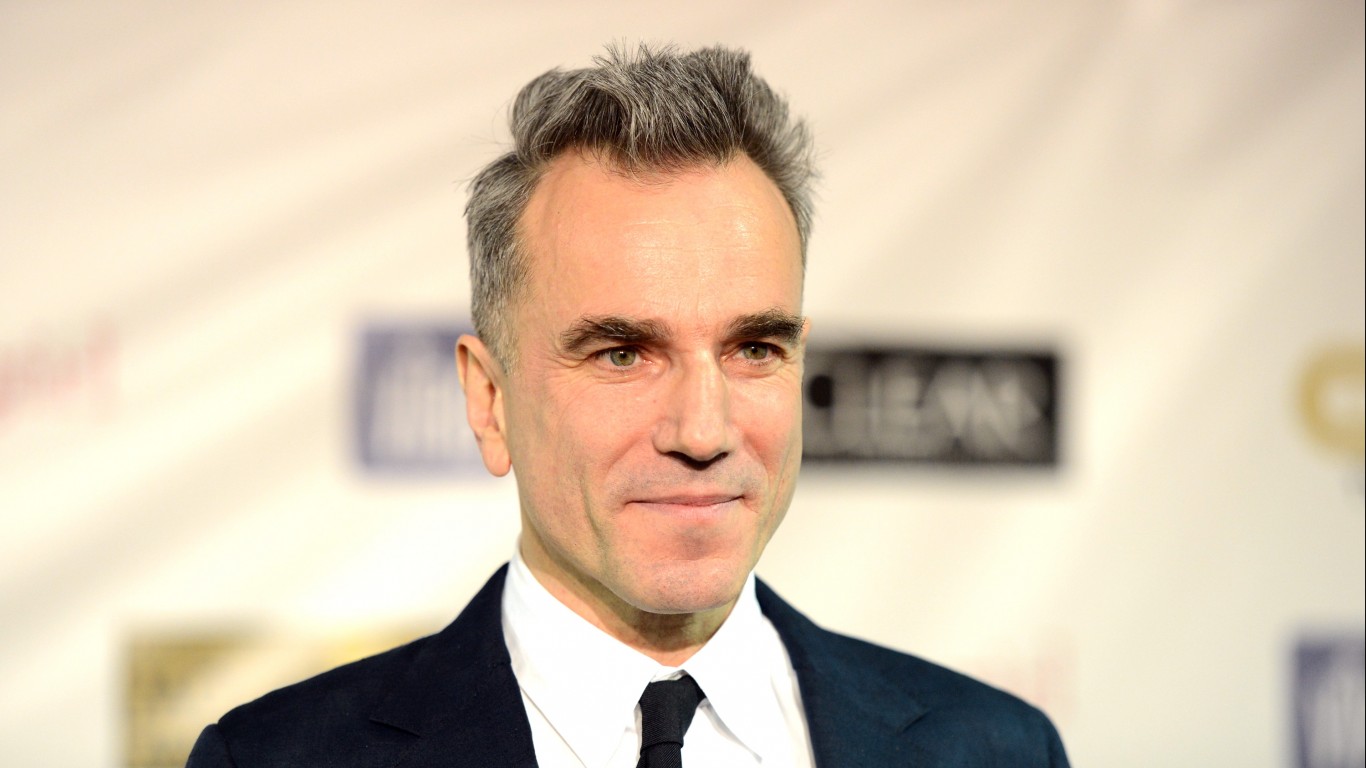

The 94th Academy Awards will be held on March 27 at the Dolby Theatre in Hollywood, and this year one film has a chance to make history. That would be “The Power of the Dog,” which has been nominated in 12 categories. If it wins all 12, it would be the biggest haul for any motion picture in a single year, and it would become the second film to sweep every category in which it has been nominated.
The Academy Awards have been presented since 1929, and while some celebrated actors have been frequently nominated but have never won – like Glenn Close (six nominations) and Peter O’Toole (eight) – some individuals, and some films, have captured the golden statue multiple times. (These are 25 of the Oscars’ most egregious snubs.)
To identify the people and films that have won the most Oscars since the Academy Awards began in 1929, 24/7 Tempo consulted listings of awards on IMDb, an online movie database owned by Amazon; and the official website of the Motion Picture Arts and Sciences; and Wikipedia. Details on awards given come from the same sources.
Three motion pictures have won 11 Academy Awards each – two within the last 25 years – and one of these three blockbusters triumphed in every category it was nominated.
When it comes to all-time winners, though, it is doubtful anyone will eclipse the 22-Oscar trove of Walt Disney. In 1954 alone, he was nominated for six Academy Awards and won four, both records. (Because his awards were divided between numerous categories, he’s not represented on this list.) The champion among women is costume designer Edith Head. She won eight awards for movies such as “All About Eve” and “A Place in the Sun,” and was nominated 27 other times for Best Costume Design.
Click here to see the biggest all-time Academy Award winners
You might not know the name of Cedric Gibbons, but you know his work as an accomplished art director. He won 11 Best Art Direction Academy Awards for films such as “Gaslight,” “An American in Paris,” and “The Bad and the Beautiful.”
Billy Wilder, Woody Allen, and Francis Ford Coppola are among the industry’s honored directors, but they’ve all actually had more Oscar victories as screenplay writers. (But here’s who won the Oscar for Best Director every year since the Oscars began.)
In 2020, the South Korean movie “Parasite” became the first foreign-language film to win for Best Picture, and it also won for Best International Feature Film, a first for a South Korean movie. By comparison, Italy has won the most Academy Awards in the foreign-film category with 14, and has received 32 total nominations.

Ben-Hur (1959)
> Winner: Most awards for a single film (11 – tied)
This biblical epic was the first film to win 11 Oscars (it was nominated 12). The film won for Best Picture, Best Actor (Charlton Heston), Best Supporting Actor (Hugh Griffith), Best Director (William Wyler), Best Cinematography, Best Art Direction, Best Costume Design-Color, Best Sound, Best Film Editing, Best Effects-Special Effects, and Best Music.
[in-text-ad]

Titanic (1997)
> Winner: Most awards for a single film (11 – tied)
Released at the end of 1997, “Titanic” was titanic in worldwide box-office gross – $ 2.20 billion – and Academy Award glory, becoming the second movie to win 11 Oscars. James Cameron’s film won Best Picture and he won for Best Director. Other Oscars were for: Best Cinematography, Best Air Direction, Best Costume Design, Best Sound, Best Film Editing, Best Effects-Sound Effects Editing, Best Effects-Visual Effects, Best Music-Original Song, and Best Music-Original Dramatic Score. “Titanic” also was nominated for three other Academy Awards.

The Lord of the Rings: The Return of the King (2003)
> Winner: Most awards for a single film (11 – tied)
Peter Jackson directed the acclaimed “Lord of the Rings” trilogy, and the third of the three, “The Lord of the Rings: The Return of the King,” made motion-picture history by winning every Academy Award in the categories for which it was nominated. The film won for Best Picture, Best Director, Best Writing-Adapted Screenplay, Best Film Editing, Best Art Direction, Best Costume Design, Best Makeup, Best Music-Original Score, Best Music-Original Song, Best Sound Mixing, and Best Visual Effects.

Fanny and Alexander (1982)
> Winner: Most awards for a foreign-language film (4 – tied)
Ingmar Bergman wrote and directed this critically honored film about the peaks and valleys in the lives of a Swedish theatrical family. The movie took home four Oscars in 1984, tied for the most of any foreign film. It won for Best Cinematography, Best Art Direction, Best Costume Design, and Best Foreign Language Film. Bergman also was nominated for Best Director and Best Writing-Screenplay.
[in-text-ad-2]

Crouching Tiger, Hidden Dragon (2000)
> Winner: Most awards for a foreign-language film (4 – tied)
Ang Lee’s action/adventure about a Chinese princess turned warrior helped vault Michelle Yeoh to international fame and garnered four Academy Awards in 2001, equaling the most of any foreign film. “Crouching Tiger, Hidden Dragon” won for Best Cinematography, Best Music-Original Score, Best Art Direction, and Best Foreign Language Film (for Taiwan).

Parasite (2019)
> Winner: Most awards for a foreign-language film (4 – tied)
“Parasite,” a Hitchcockian-type thriller from South Korea, made history in 2020 by becoming the first foreign-language film to win Best Picture. It also won for Best Director (Bong Joon Ho), Best Original Screenplay, and Best Foreign Language Film (for South Korea).
[in-text-ad]
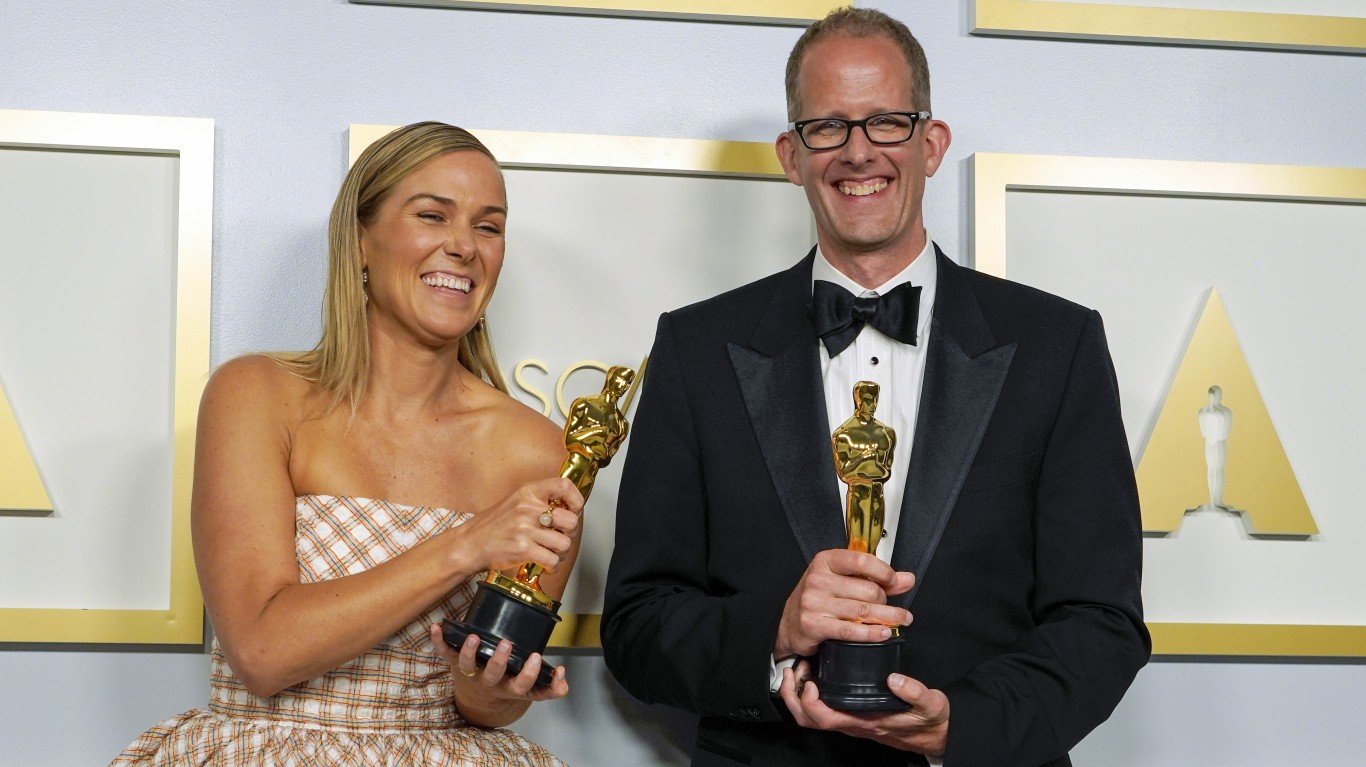
Peter Docter
> Winner: Most awards for animated features (3)
Peter Docter is the chief creative officer at Pixar Animation Studios, which he joined in 1990. Since then, he’s won three Academy Awards for Best Animated Feature Film for “Inside Out” (2015) and “Soul” (2020) – sharing both with Dana Murray and Jonas Rivera – and for “Up” (2009). Doctor also has been nominated for an Academy Award on six other occasions.
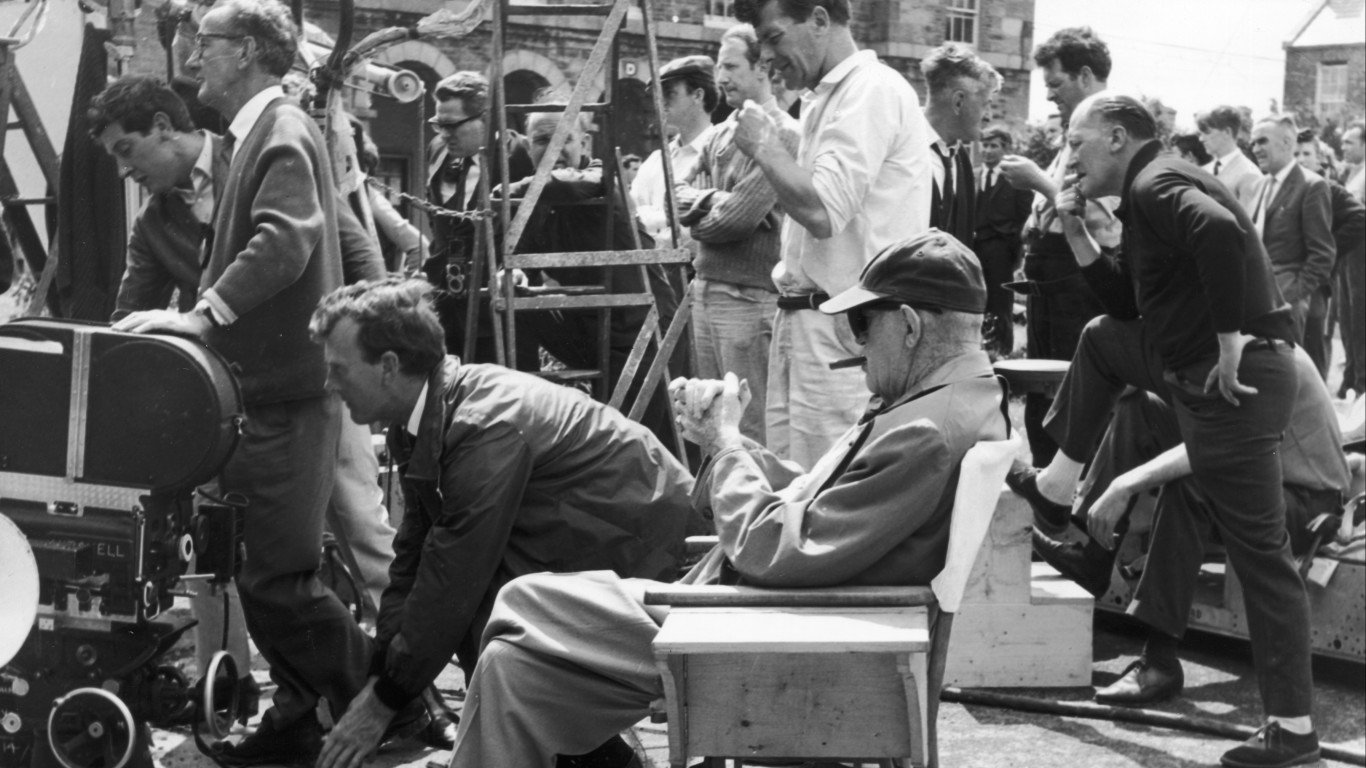
John Ford
> Winner: Best Director (4)
John Ford is the most honored director in movie history, with four Best Director Oscar wins to his credit. Though Ford is correctly most associated with the Western, and directed such classics as “Stagecoach” “The Searchers,” and “The Man Who Shot Liberty Valance,” none of his Academy Awards are for helming a film in that category. Ford won for “The Quiet Man” (1952), “How Green Was My Valley” (1941), “The Grapes of Wrath” (1940), and “The Informer” (1935). He was nominated two other times.
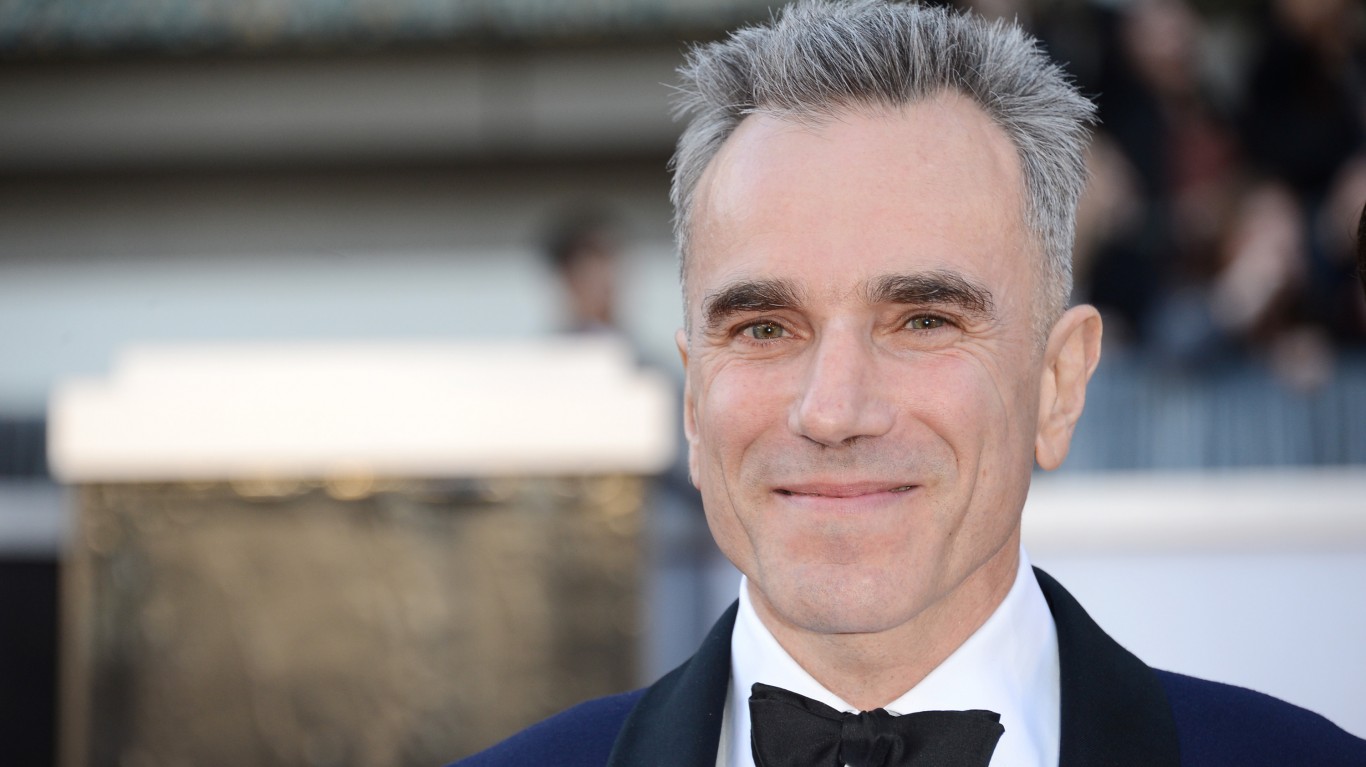
Daniel Day-Lewis
> Winner: Best Actor (3)
Daniel Day-Lewis is considered by many film followers to be the greatest living actor and among the best to ever grace the big screen. Day-Lewis has particularly excelled at roles in historical or period films. The British actor won his first Best Actor Oscar for “My Left Foot: the Story of Christy Brown” (1989), and followed up that triumph with Best Actor nods for “There Will Be Blood” (2007),and “Lincoln” (2012). Day-Lewis was nominated for Best Actor on three other occasions.
[in-text-ad-2]
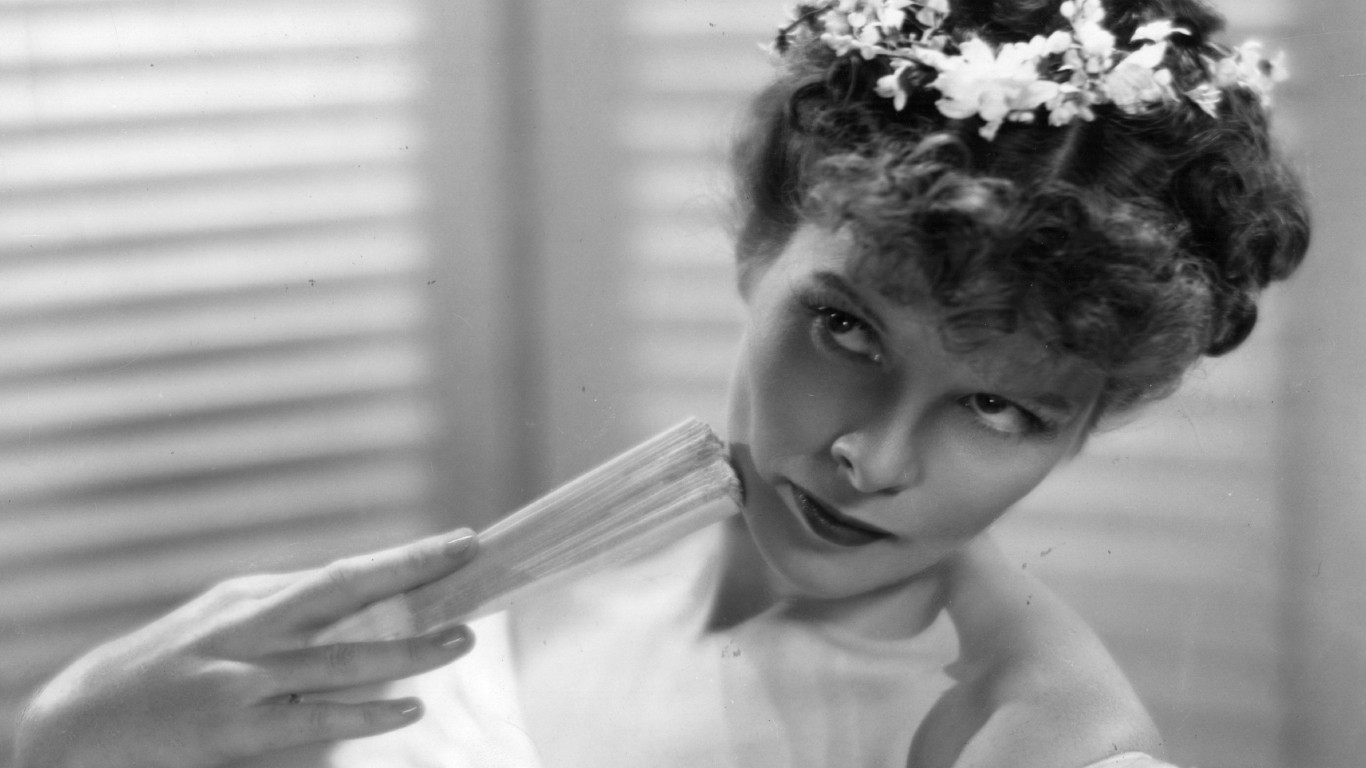
Katharine Hepburn
> Winner: Best Actress (4)
Once considered box-office poison by critics after a slew of failed movies, Katharine Hepburn became cinema’s most honored actress and was named by the American Film Institute as its greatest female star. After winning Best Actress for “Morning Glory” (1933), it would take her 34 years and eight Academy Award nominations before winning another Best Actress Oscar – for “Guess Who’s Coming to Dinner” (1967). She won again the following year for “A Lion in Winter” (1968), and took home her final golden statue for “On Golden Pond” (1981).
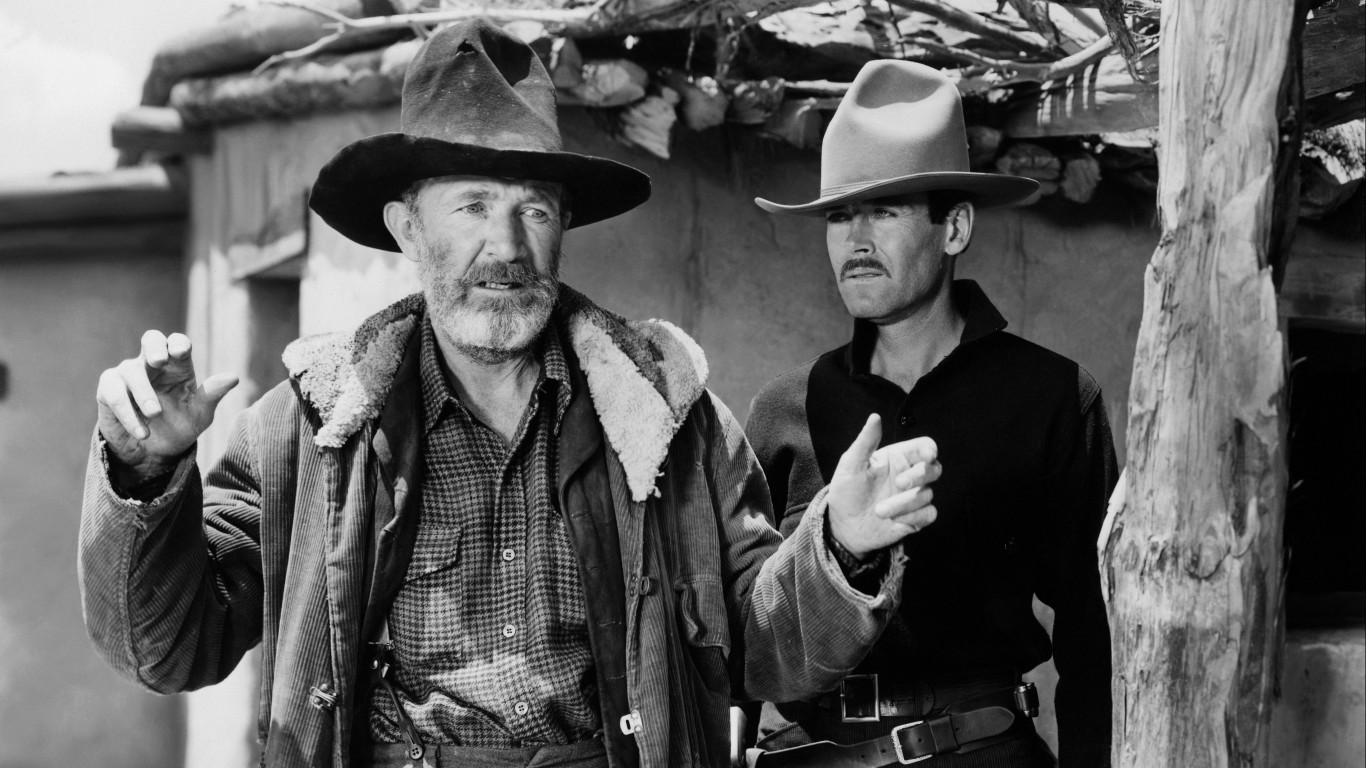
Walter Brennan
> Winner: Best Supporting Actor (3)
The consummate character actor in Westerns, Walter Brennan won Best Supporting Actor three times, more than anyone else. Over the span of five years, Brennan took the Academy Award in “Come and Get It” (1936), “Kentucky” (1938), and “The Westerner” (1940). He also was nominated the following year for “Sergeant York.”
[in-text-ad]
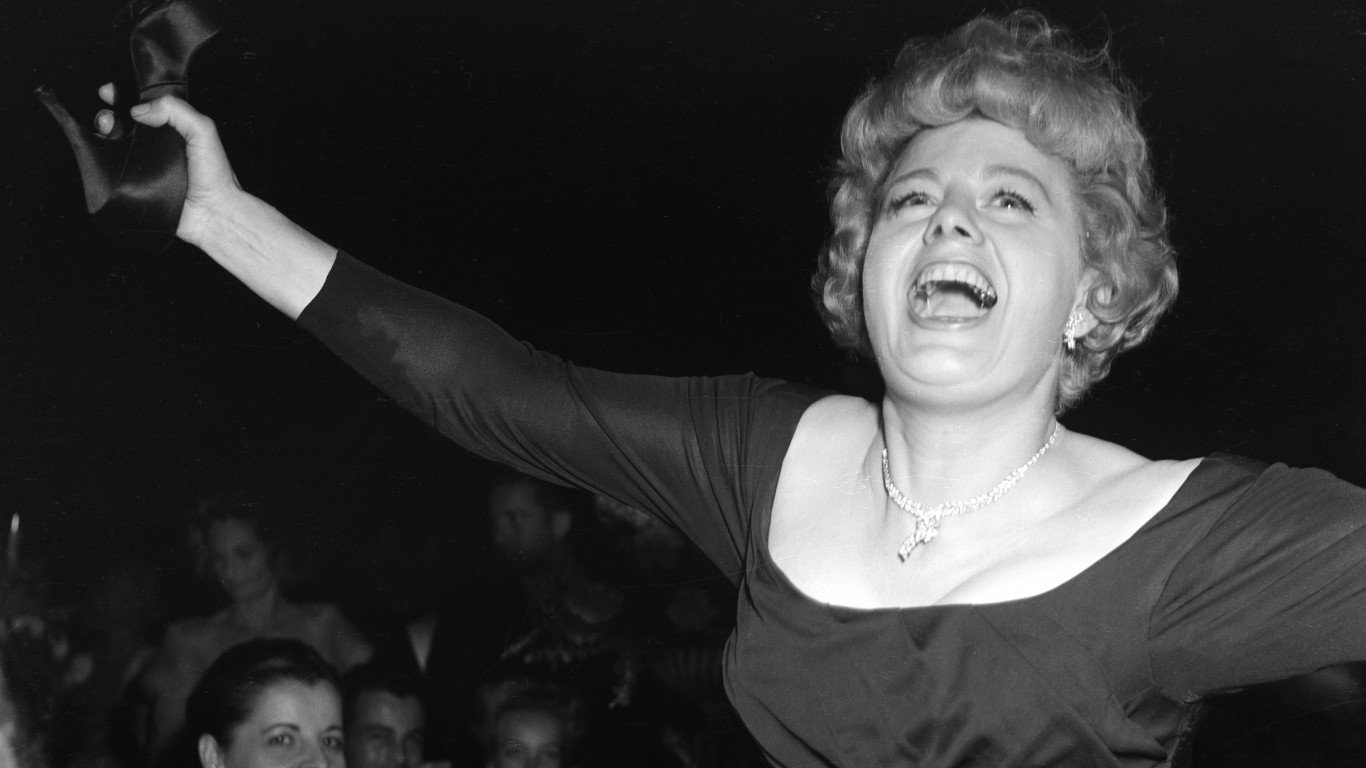
Shelley Winters
> Winner: Best Supporting Actress (2 – tied)
Shelley Winters won the Best Supporting Actress Oscar twice, a feat since equalled by Dianne Wiest. Winters won her first Academy Award for “The Diary of Anne Frank” (1959) and her second for “A Patch of Blue” (1965). She was nominated two other times for an Oscar, once for Best Supporting Actress and once for Best Actress.
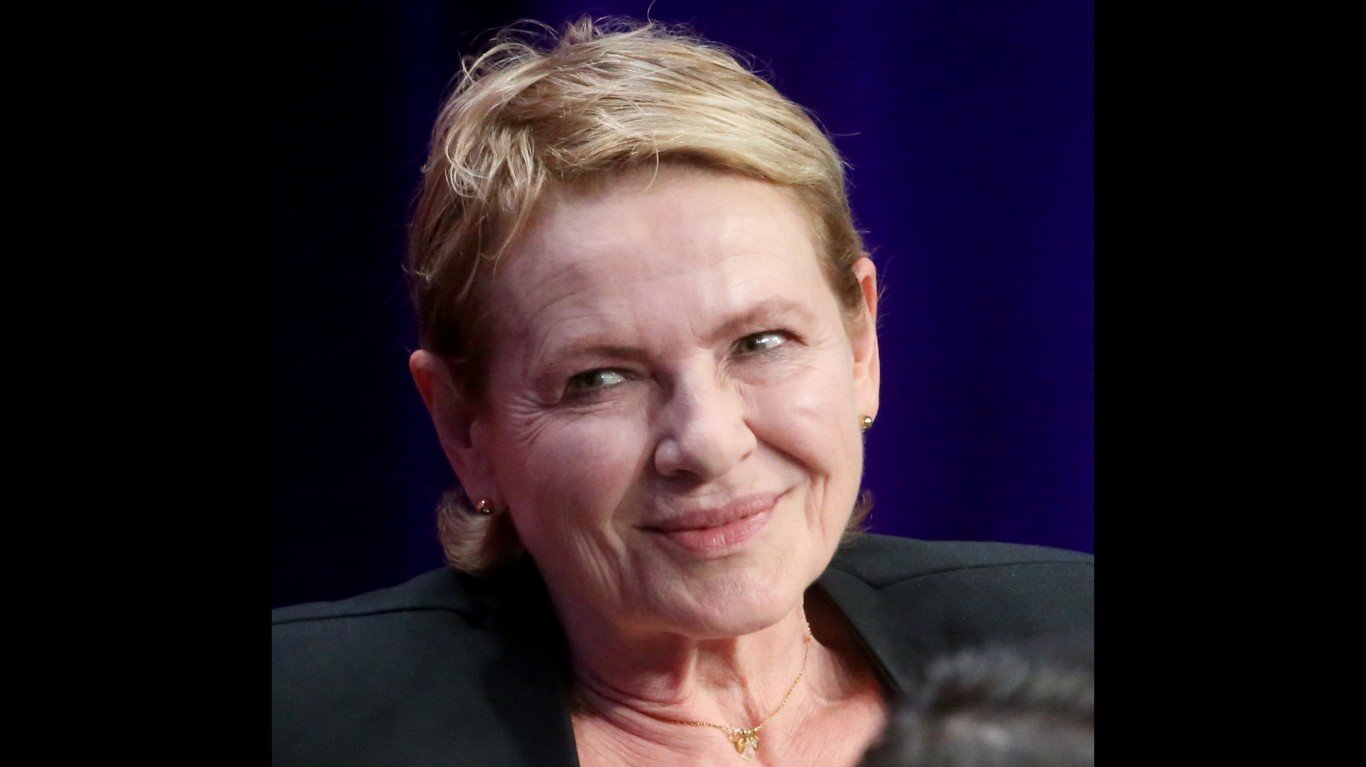
Dianne Wiest
> Winner: Best Supporting Actress (2 – tied)
Dianne Wiest, frequent collaborator with Woody Allen, has won two Best Supporting Actress Oscars in movies he directed – first for “Hannah and Her Sisters” (1986), then for “Bullets Over Broadway” (1994). She was also nominated for a Best Supporting Actress Oscar for “Parenthood” (1989).
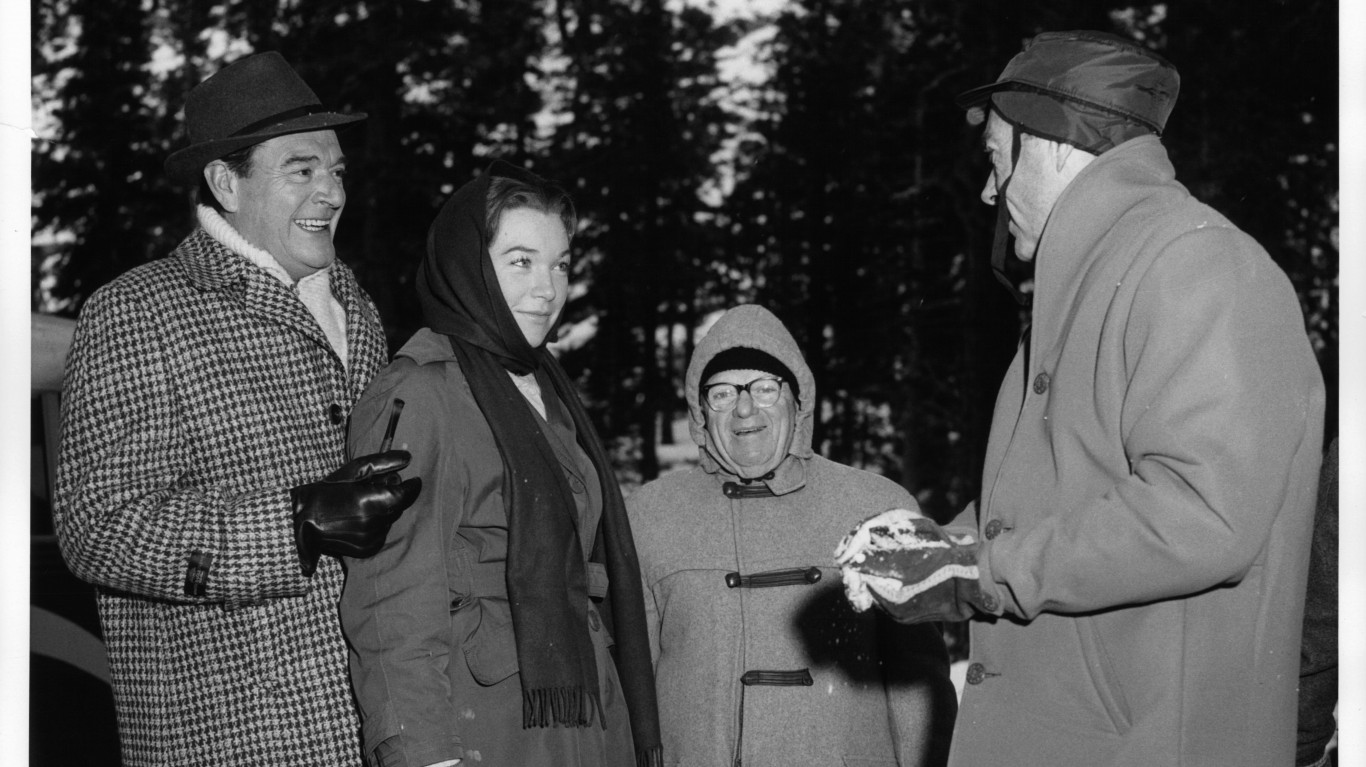
Joseph Ruttenberg
> Winner: Best Cinematography (4 – tied)
Russian-born Joseph Ruttenberg won four Best Cinematography Oscars, tying him with Leon Shamroy. His first was for “The Great Waltz” (1938), followed by “Mrs. Miniver” (1942), “Somebody Up There Likes Me” (1956), and “Gigi” (1958). Ruttenberg was nominated for a Best Cinematography Academy Award on six other occasions.
[in-text-ad-2]

Leon Shamroy
> Winner: Best Cinematography (4 – tied)
Leon Shamroy tied with Joseph Ruttenberg for the most Best Cinematography Academy Awards with four. Shamroy won for “The Black Swan” (1942), “Wilson” (1944), “Leave Her to Heaven” (1945), and “Cleopatra” (1963). He also was nominated for the Best Cinematography Oscar 14 other times.
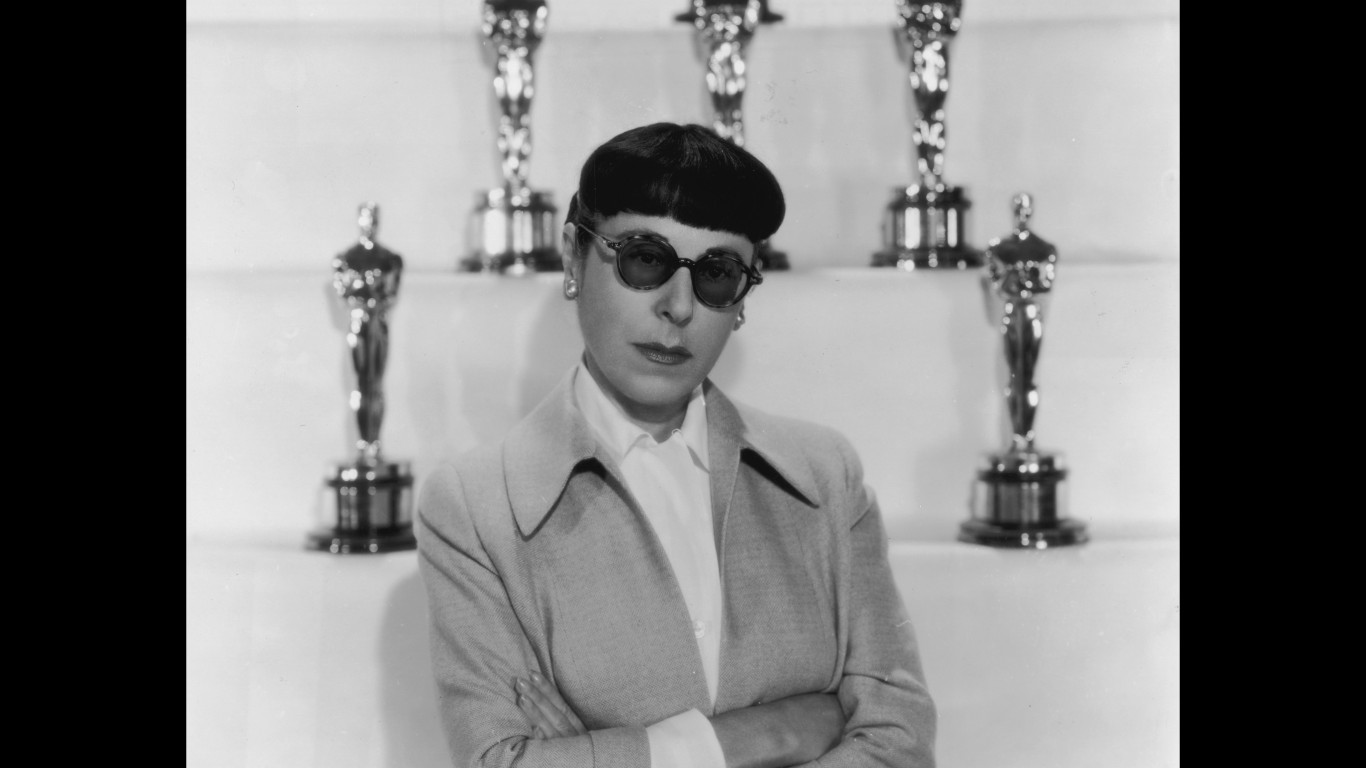
Edith Head
> Winner: Best Costume Design (8)
Edith Head is the most famous costume designer of all time, and the most honored by the motion picture academy. She copped her first gold statue for “The Heiress” (1949), followed by “Samson and Delilah (1949), “All About Eve” (1950), “A Place in the Sun” (1951), “Roman Holiday” (1953), “Sabrina” (1954), “The Facts of Life” (1960), and “The Sting” (1973). Head was nominated a mind-boggling 27 other times for Best Costume Design.
[in-text-ad]
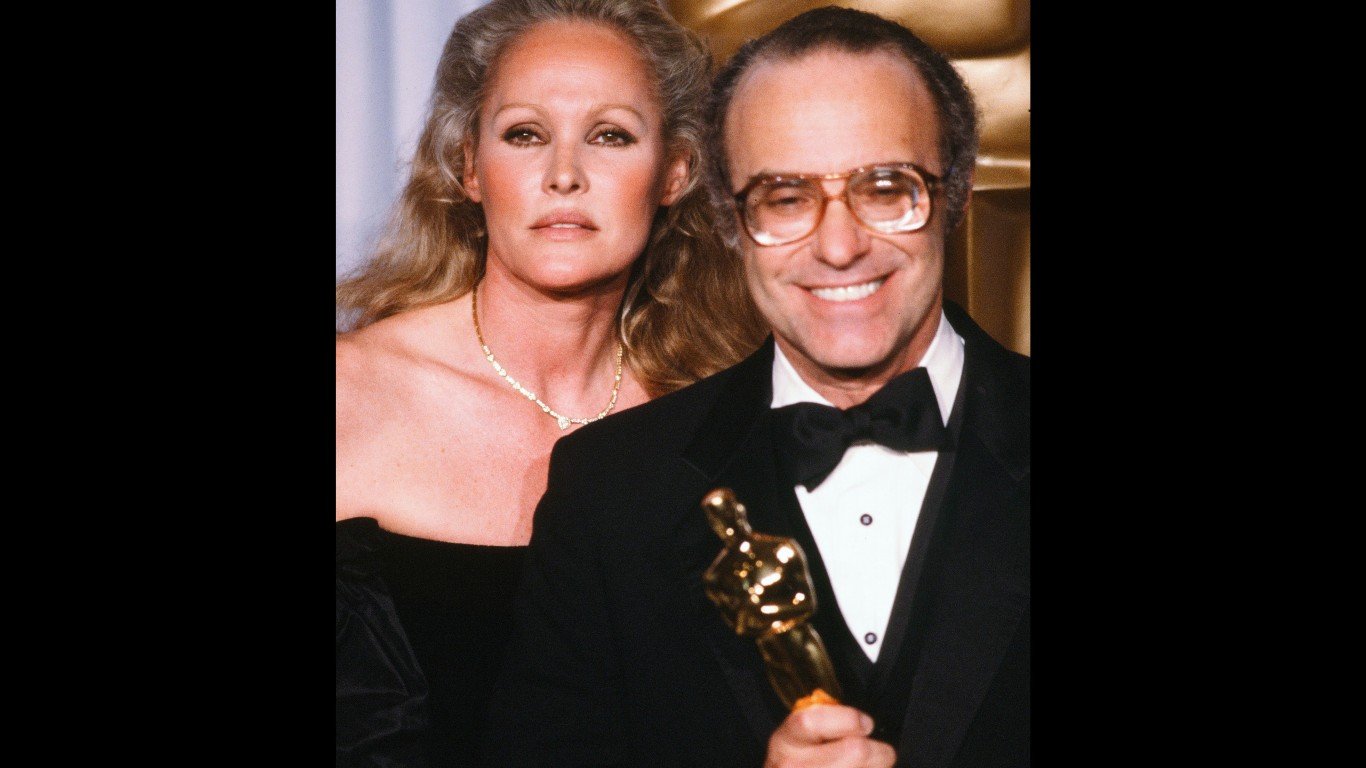
Michael Kahn
> Winner: Best Film Editing (3 – tied)
The 91-year-old film editor Michael Kahn has worked closely with Steven Spielberg and has distinguished himself with three Best Film Editing Oscar wins, tying him with three other film editors. Kahn won the gold statue for “Raiders of the Lost Ark” (1981), “Schindler’s List” (1993), and “Saving Private Ryan” (1998). He also was nominated five other times.
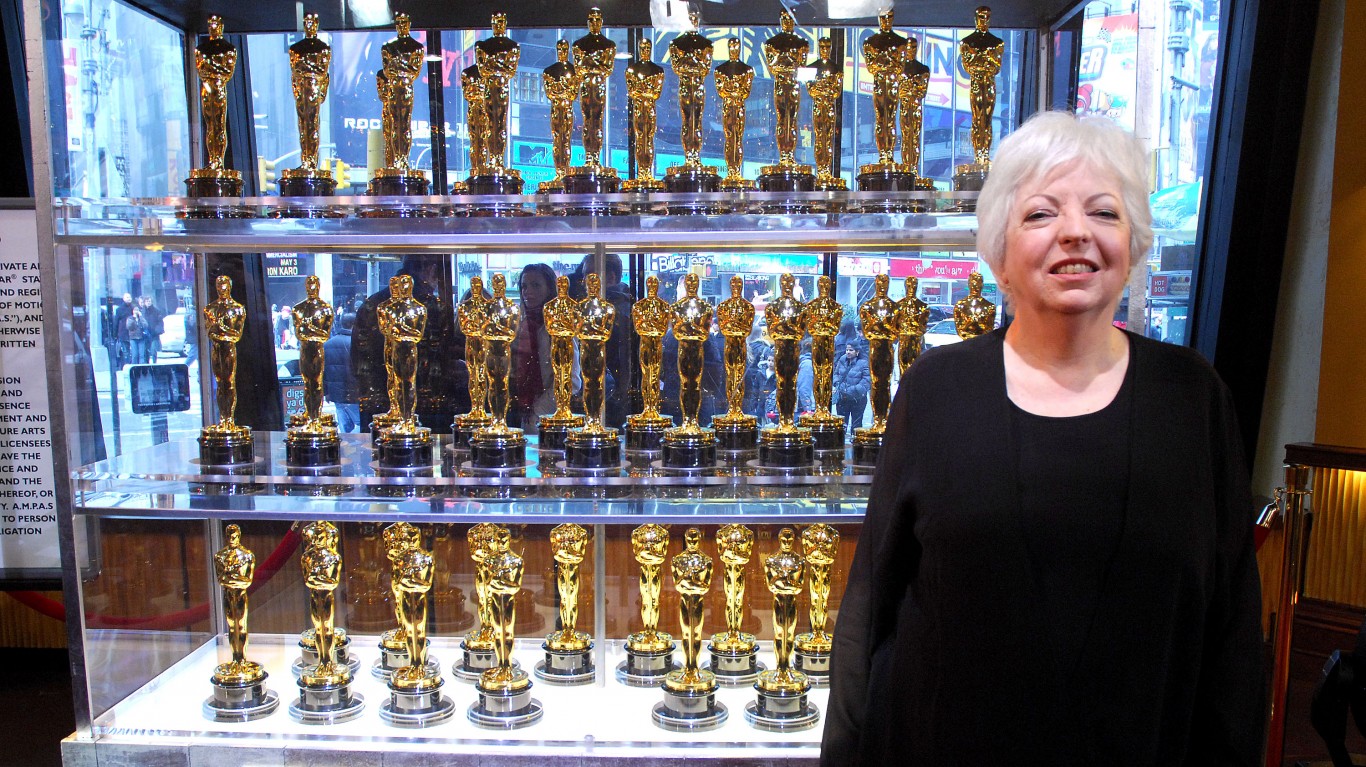
Thelma Schoonmaker
> Winner: Best Film Editing (3 – tied)
Thelma Schoonmaker’s career has long been associated with that of Martin Scorsese, and she has won three Best Film Editing Oscars. The Algerian-born Schoonmaker captured her Academy Awards for “Raging Bull” (1980), “The Aviator” (2004), and “The Departed” (2006), all films she collaborated on with Scorsese. She’s been nominated for five other film-editing Oscars over an almost 50-year career.

Daniel Mandell
> Winner: Best Film Editing (3 – tied)
Former circus acrobat and vaudevillian Daniel Mandell won Best Film Editing Oscars for “The Pride of the Yankees” (1942), “The Best Years of Our Lives” (1946), and “The Apartment” (1960). He was nominated for the award on two other occasions.
[in-text-ad-2]

Ralph Dawson
> Winner: Best Film Editing (3 – tied)
Ralph Dawson was the most awarded film editor of the 1930s. He won three Best Film Editing Oscars over a four-year period: “A Midsummer Night’s Dream” (1935), “Anthony Adverse” (1936), and “The Adventures of Robin Hood” (1938). He was nominated one other time, for “The High and the Mighty” (1954).
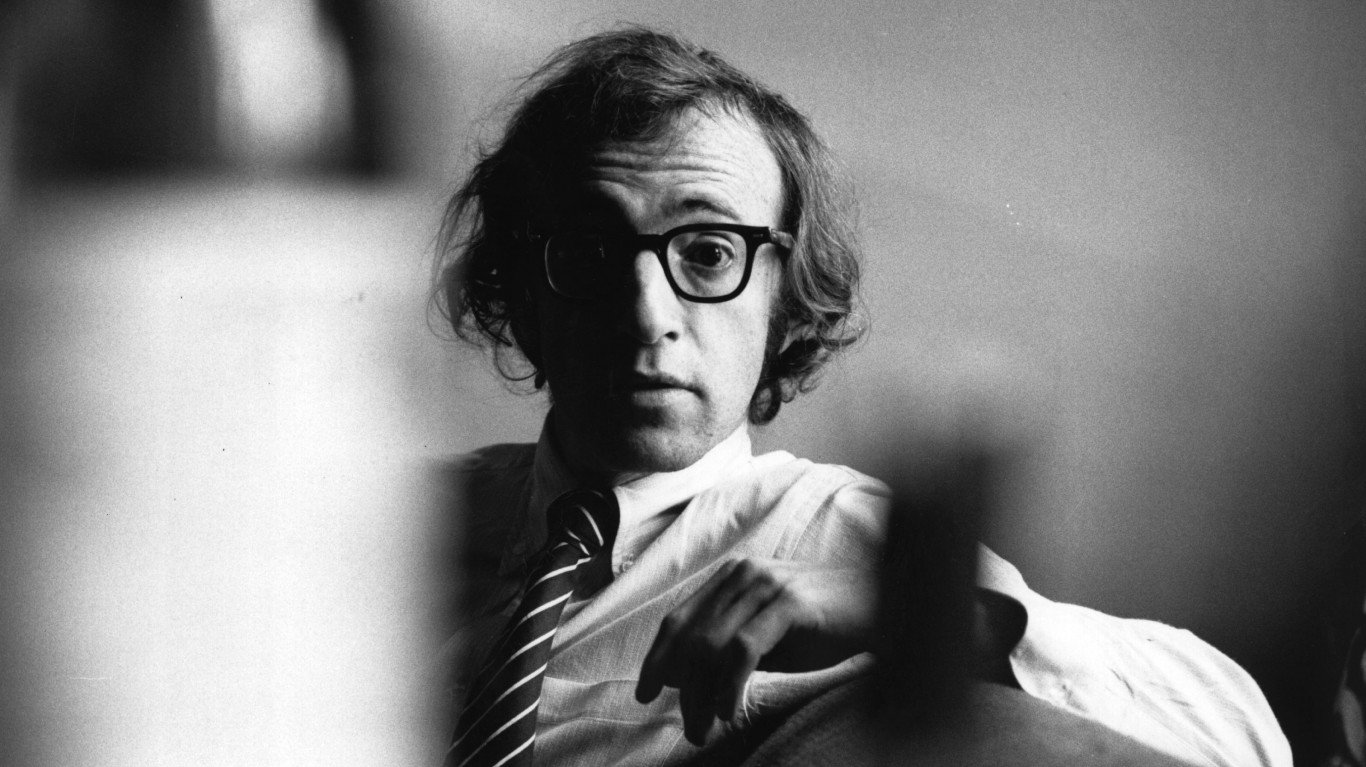
Woody Allen
> Winner: Best Original Screenplay (3)
Woody Allen has won three of his four Academy Awards for Best Original Screenplay. The former stand-up comedian won for “Annie Hall” (1977), “Hannah and Her Sisters” (1986), and “Midnight in Paris” (2011). He also won a Best Director Oscar for “Annie Hall.” Allen has been nominated for 20 other Oscars for acting, directing, and writing.
[in-text-ad]

Charles Brackett
> Winner: Best Original and Best Adapted Screenplay (3 – tied)
Former attorney Charles Brackett is most closely associated with director Billy Wilder, and he shared two of his Best Writing, Screenplay Oscars with him – “The Lost Weekend” (1945) and “Sunset Boulevard” (1950). He also won the gold trophy for “Titanic” (1953), which he shared with Walter Reisch and Richard L. Breen. Brackett received six other nominations.
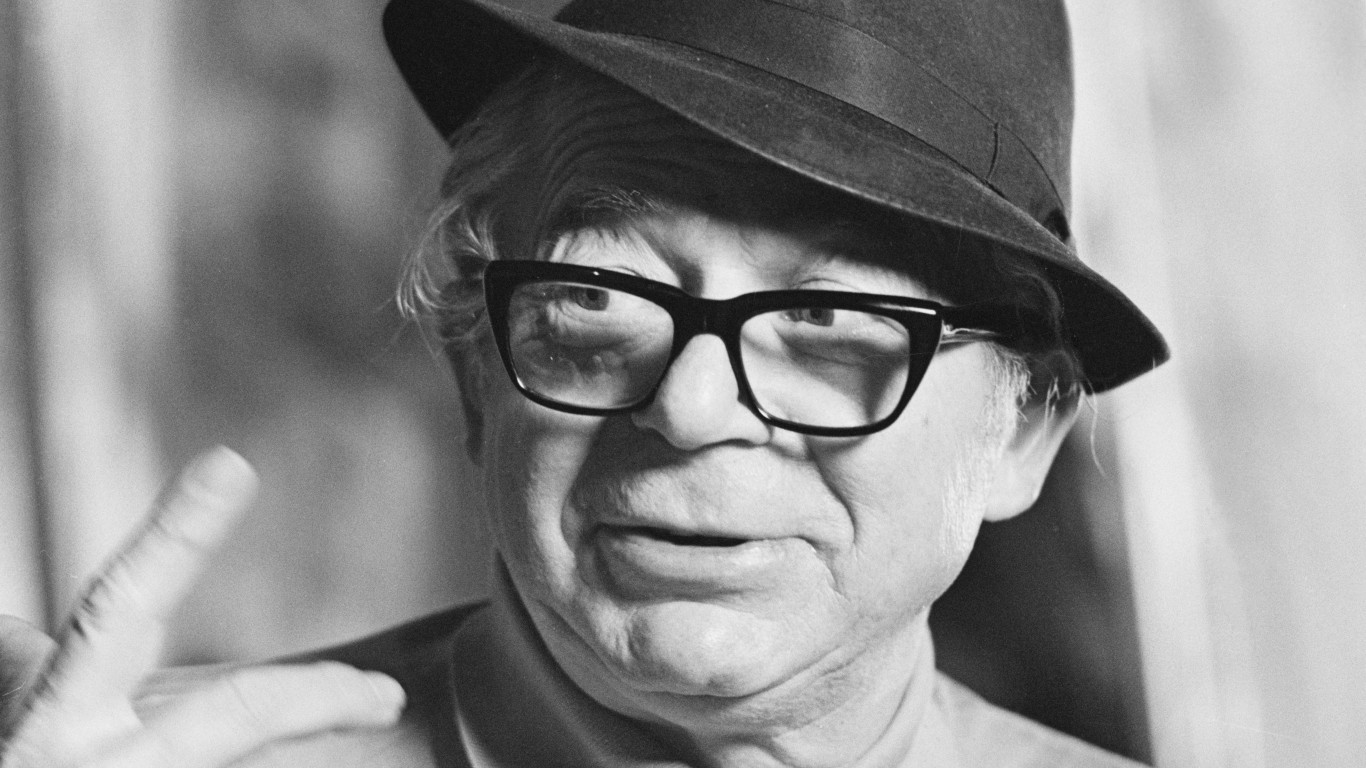
Billy Wilder
> Winner: Best Original and Best Adapted Screenplay (3 – tied)
Billy Wilder, always on the short list of cinema’s greatest directors with two directing Academy Awards, actually enjoyed more Oscar success in screenplay writing. Wilder shared two of his Best Writing, Screenplay Oscars with Charles Brackett – “The Lost Weekend” (1945) and “Sunset Boulevard” (1950) – and collaborated with I.A. Diamond for “The Apartment” (1960). Wilder was nominated eight other times for Best Writing, Screenplay.

Pаddy Chayefsky
> Winner: Best Original and Best Adapted Screenplay (3 – tied)
Pаddy Chayefsky is the only person to have won three solo Academy Awards for writing both adapted and original screenplays. Chayefsky won for “Marty” (1955), “The Hospital” (1971), and “Network” (1976). He was nominated one other time. Chayefsky helped popularize the slice-of-life stories that were common fare on television in the 1950s and early ’60s.
[in-text-ad-2]
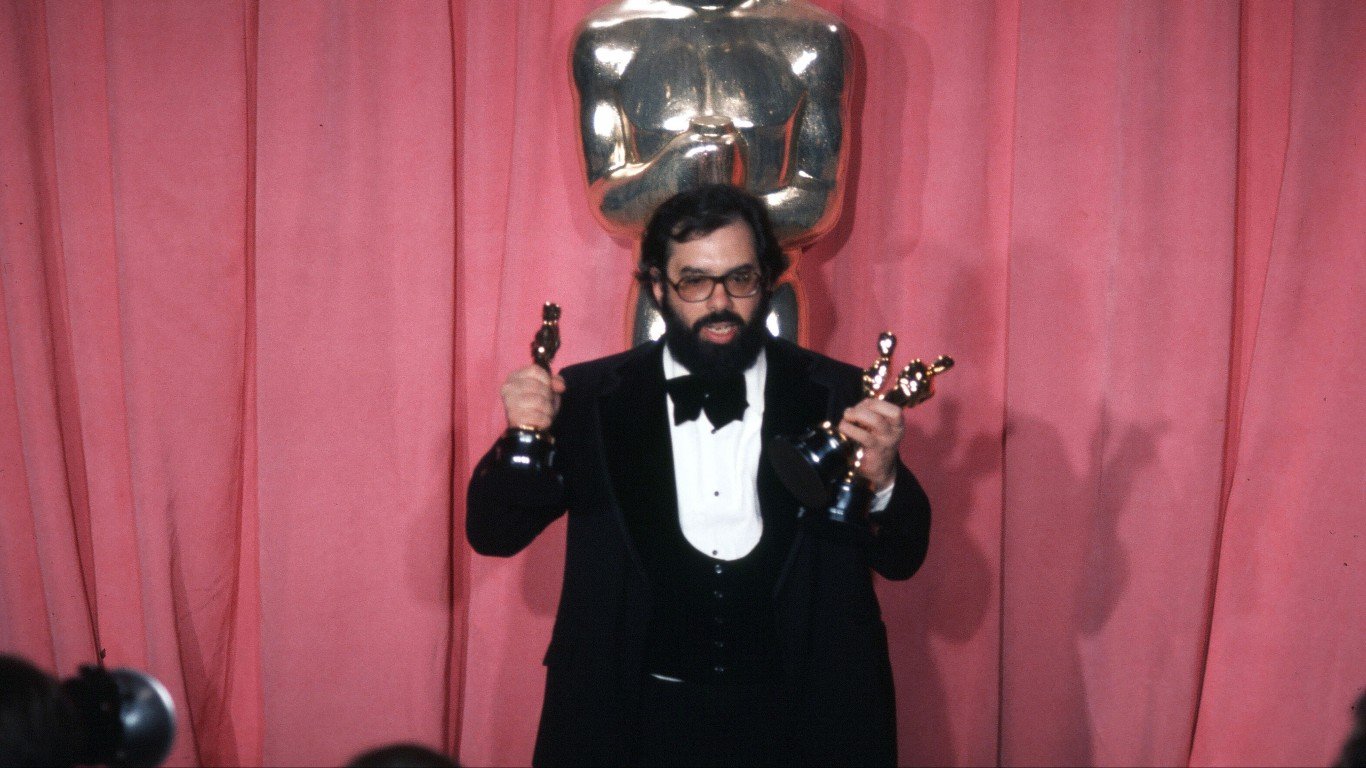
Francis Ford Coppola
> Winner: Best Original and Best Adapted Screenplay (3 – tied)
The “Godfather” films put Francis Ford Coppola front and center among Hollywood directors, with two nominations and an Oscar triumph. However, Coppola has been as accomplished as a screenplay writer with three shared Academy Awards. He shared the screenplay Oscar with Edmund H. North for “Patton” (1970), “The Godfather” with Mario Puzo (1972), and “The Godfather: Part II” with Mario Puzo (1974). He was nominated for two other screenplay Academy Awards.

Alfred Newman
> Winner: Best Original Score (9)
Alfred Newman has written some of Hollywood’s greatest music scores and has won an Academy Award nine times. He copped his first golden statue for “Alexander’s Ragtime Band” (1938), and kept winning -“Tin Pan Alley (1940), “The Song of Bernadette” (1944), “Mother Wore Tights” (1947), “With a Song in My Heart” (1952), “Call Me Madam” (1953), “Love is a Many-Splendored Thing” (1955), “The King and I” (1956 – shared with Ken Darby), and “Camelot” (1967 – shared with Ken Darby). Newman was nominated 36 other times for Best Original Score.
[in-text-ad]

Alan Menken
> Winner: Best Original Song (4)
The 1990s were a golden era for Disney’s animated films, and the songs of Alan Menken were a major reason. He collaborated with longtime partner Howard Ashman on “The Little Mermaid” (1989) and “Beauty and the Beast” (1991), with Tim Rice on “Aladdin” (1992), and with Stephen Schwartz on “Pocahontas” (1995). He has also won four Oscars for Best Original Score, and been nominated for Best Song or Best Score on 11 other occasions.
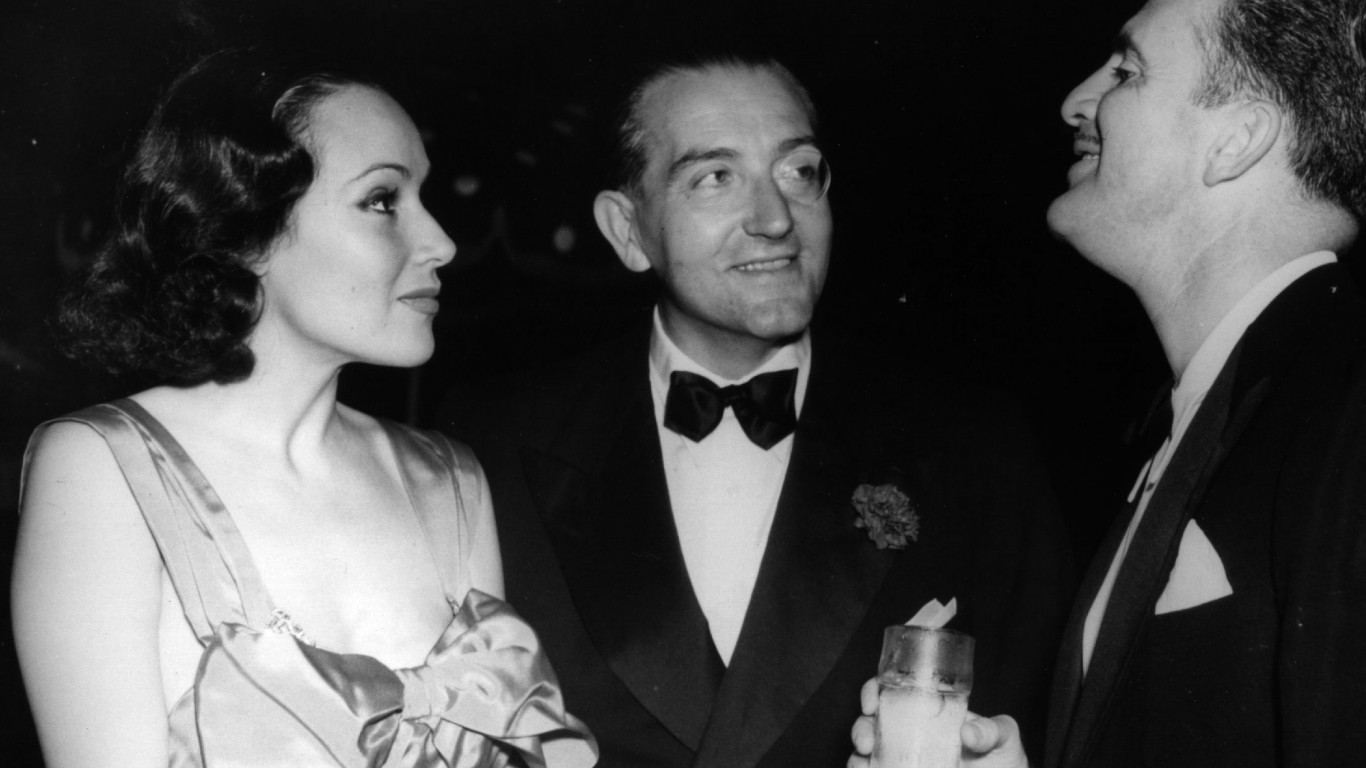
Cedric Gibbons
> Winner: Best Art Direction (now Best Production Design) (11)
Irish-born Cedric Gibbons began his career at the dawn of the talking motion picture and extended it into the mid-1950s and the age of CinemaScope. Along the way, he corralled 11 Best Art Direction Academy Awards. His first was for “The Bridge of San Luis Rey” (1929), followed by “The Merry Widow” (1934), “Pride and Prejudice” (1940), “Blossoms in the Dust” (1941), “Gaslight” (1944), “The Yearling” (1946), “Little Women” (1949), “An American in Paris” (1951), “The Bad and the Beautiful” (1952), “Julius Caesar” (1953), and “Somebody Up There Likes Me” (1956). Many of these awards he shared with various collaborators. He was nominated 28 other times.
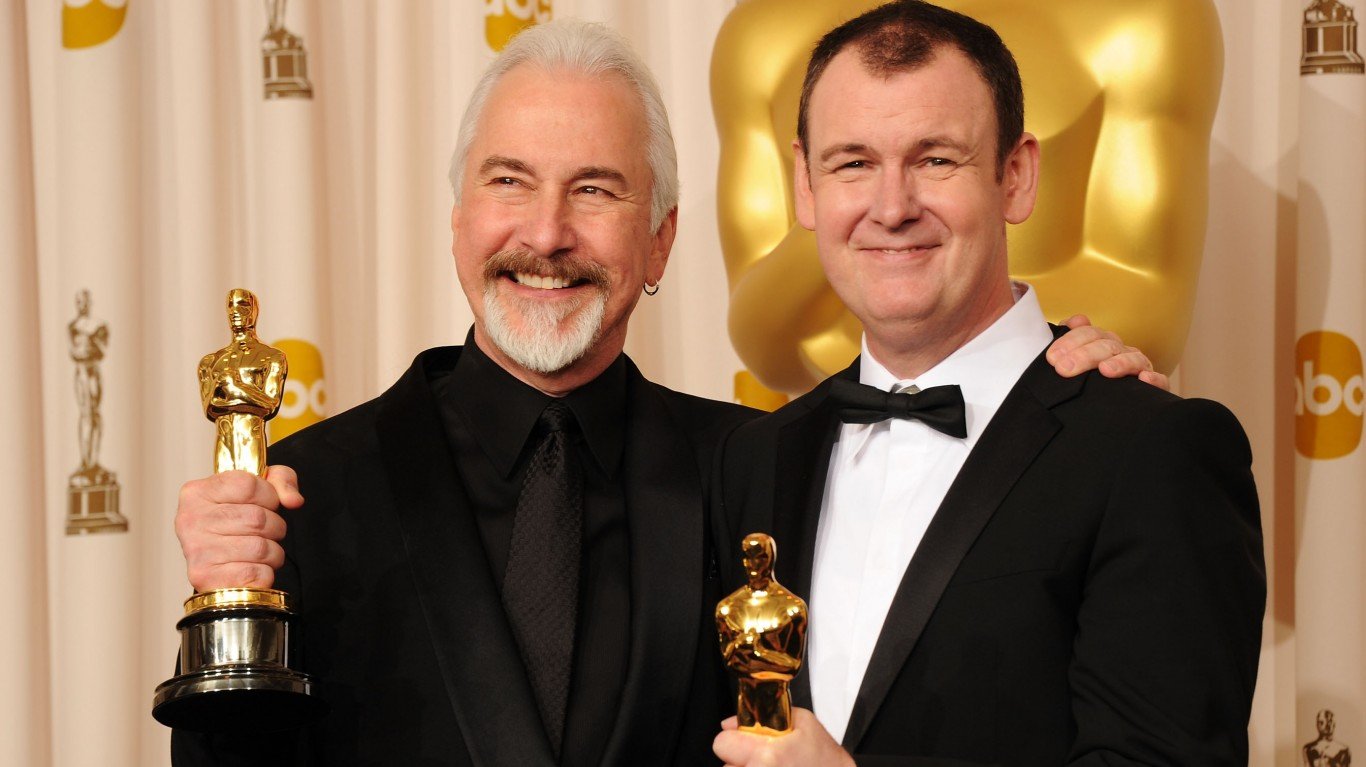
Rick Baker
> Winner: Best Makeup (now Best Makeup and Hairstyling) (7)
When it comes to Best Makeup Oscars, Rick Baker is the champion with seven. He’s won for “An American Werewolf in London” (1981), “Harry and the Hendersons” (1987), “Ed Wood” (1994), “The Nutty Professor” (1996), “Men in Black” (1997), “How the Grinch Stole Christmas” (2000), and “The Wolfman” (2010). Baker was nominated on five other occasions.
[in-text-ad-2]
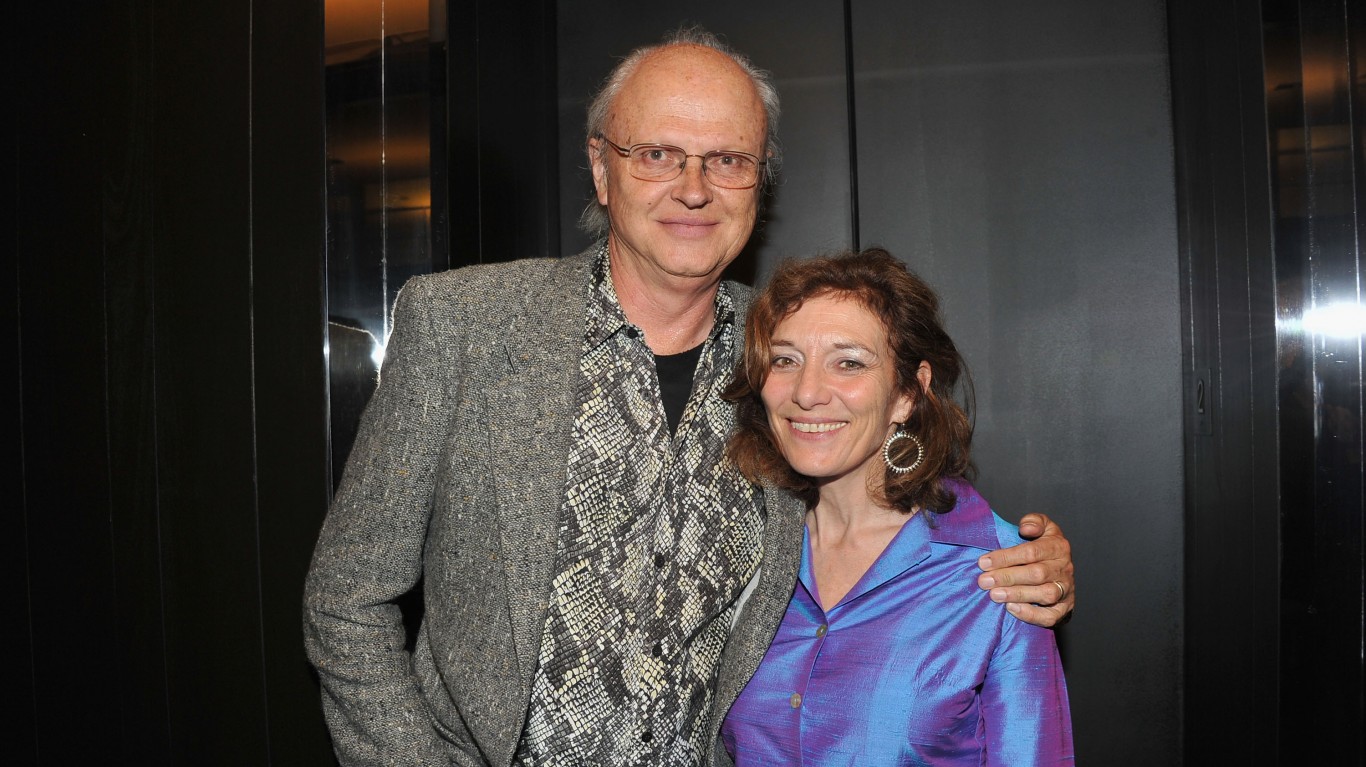
Dennis Muren
> Winner: Best Visual Effects (6)
Dennis Muren, senior visual effects supervisor and creative director of the storied Industrial Light & Magic, has collected six Academy Awards for Best Visual Effects. He’s won for “E.T. the Extra-Terrestrial” (1982), “Indiana Jones and the Temple of Doom,” (1984), “Innerspace” (1987), “The Abyss” (1989), “Terminator 2: Judgment Day (1991), and “Jurassic Park” (1993). He’s been nominated for seven other times. Muren has also won three Oscars for technical or special achievement.
Take This Retirement Quiz To Get Matched With A Financial Advisor (Sponsored)
Take the quiz below to get matched with a financial advisor today.
Each advisor has been vetted by SmartAsset and is held to a fiduciary standard to act in your best interests.
Here’s how it works:
1. Answer SmartAsset advisor match quiz
2. Review your pre-screened matches at your leisure. Check out the
advisors’ profiles.
3. Speak with advisors at no cost to you. Have an introductory call on the phone or introduction in person and choose whom to work with in the future
Take the retirement quiz right here.
Thank you for reading! Have some feedback for us?
Contact the 24/7 Wall St. editorial team.
 24/7 Wall St.
24/7 Wall St.
